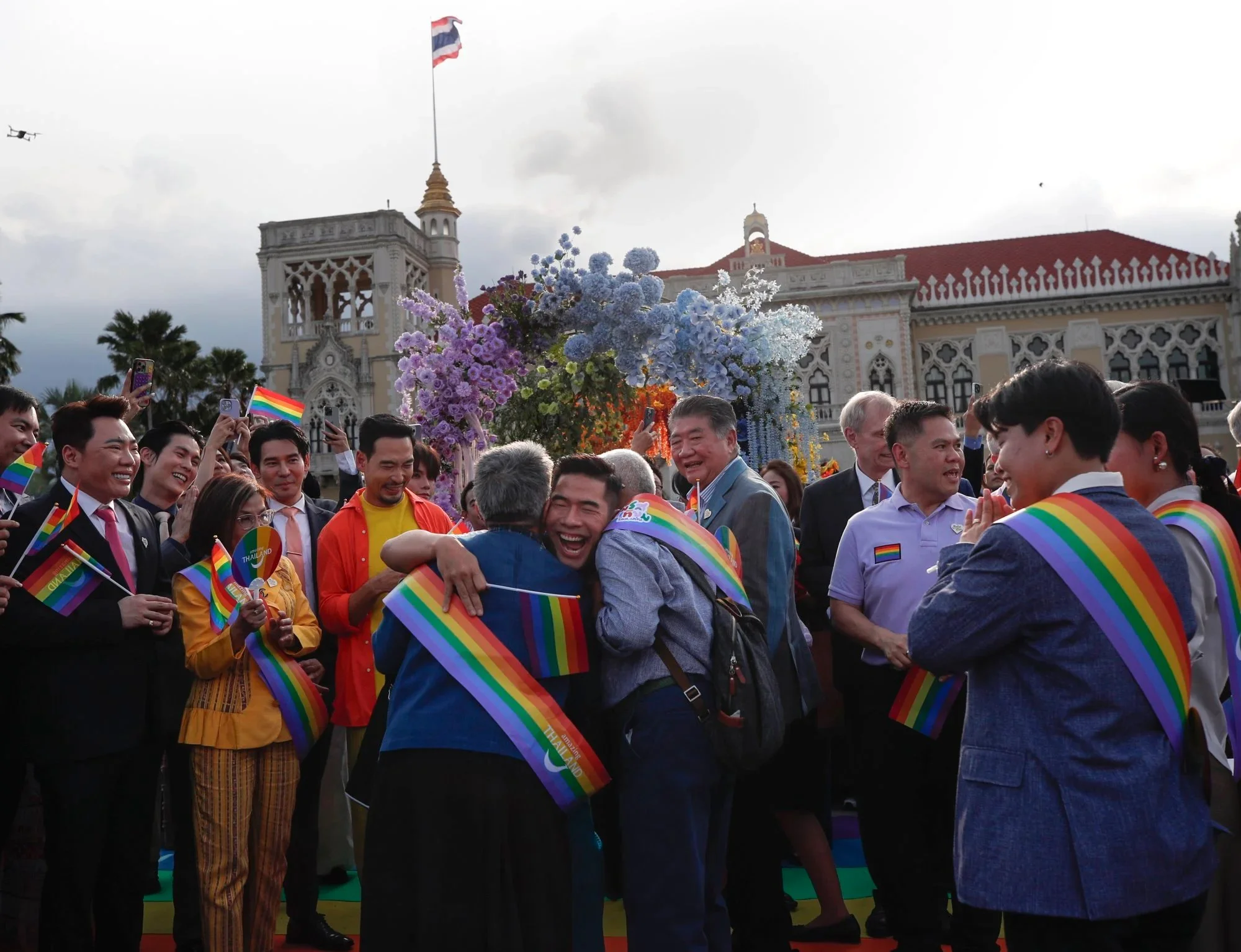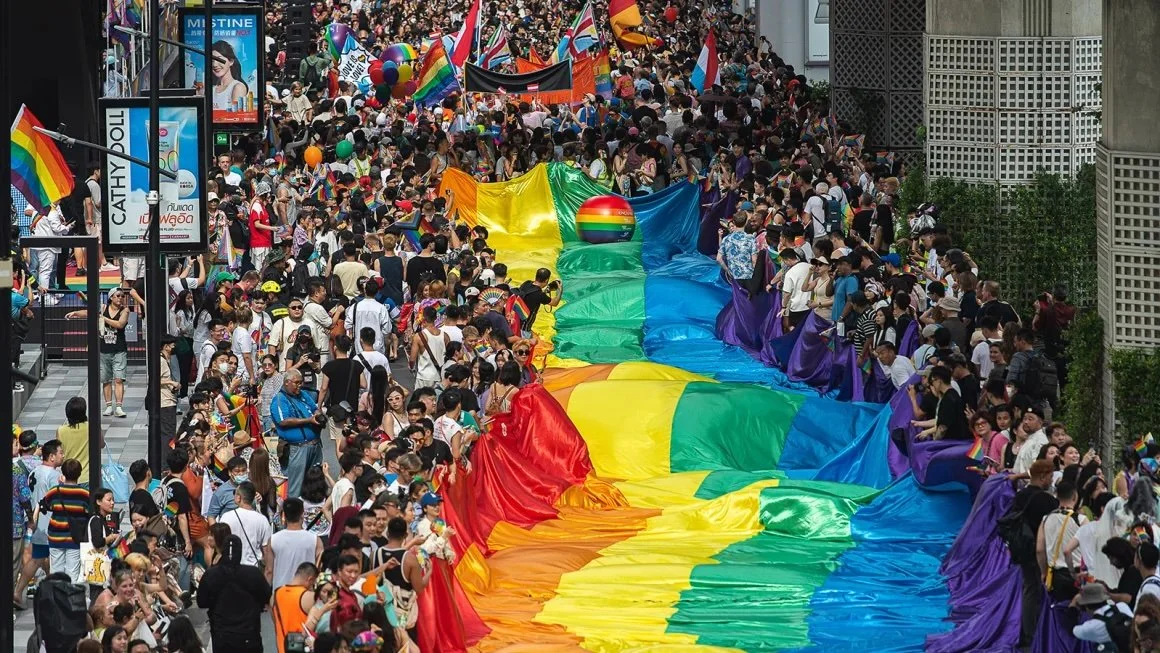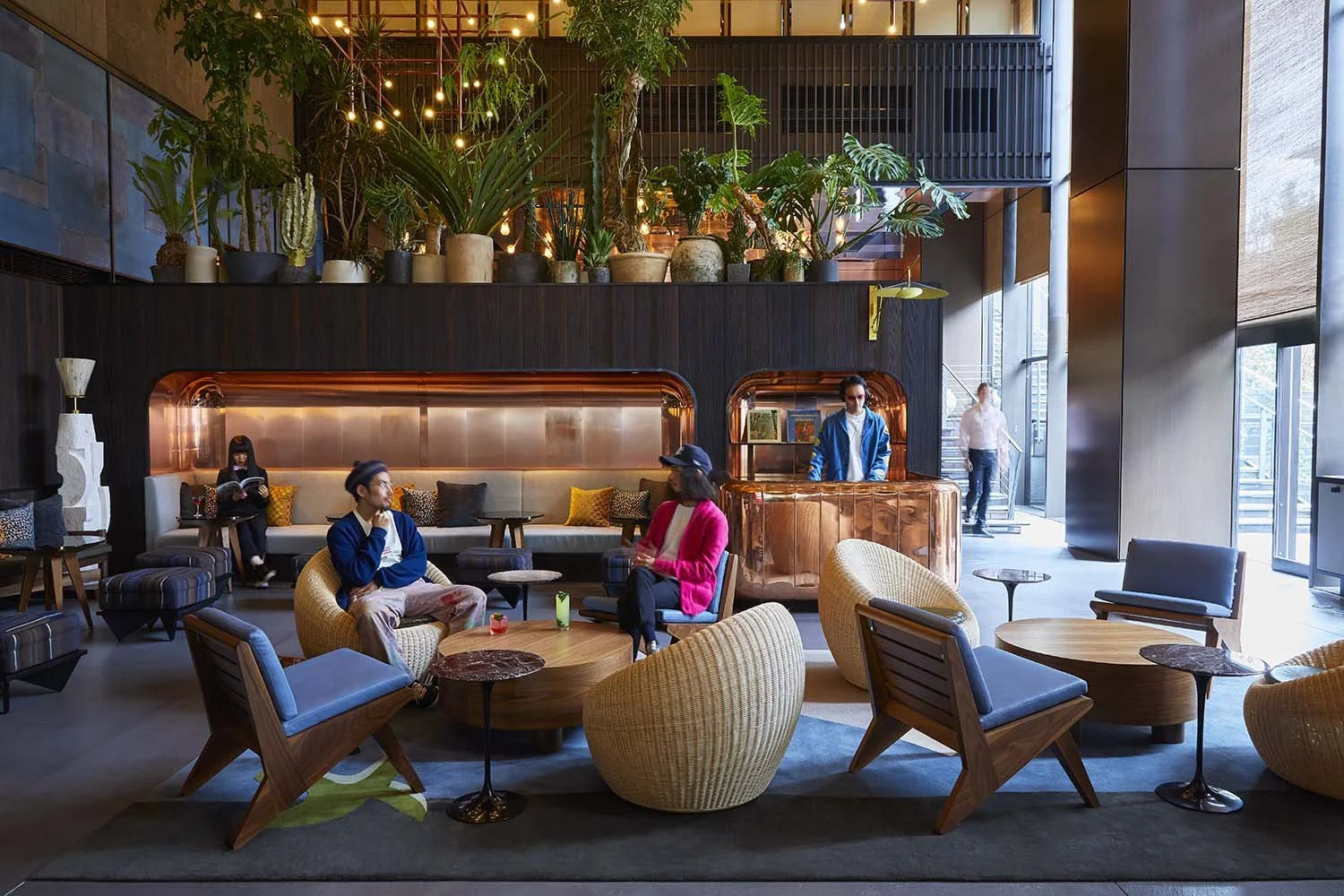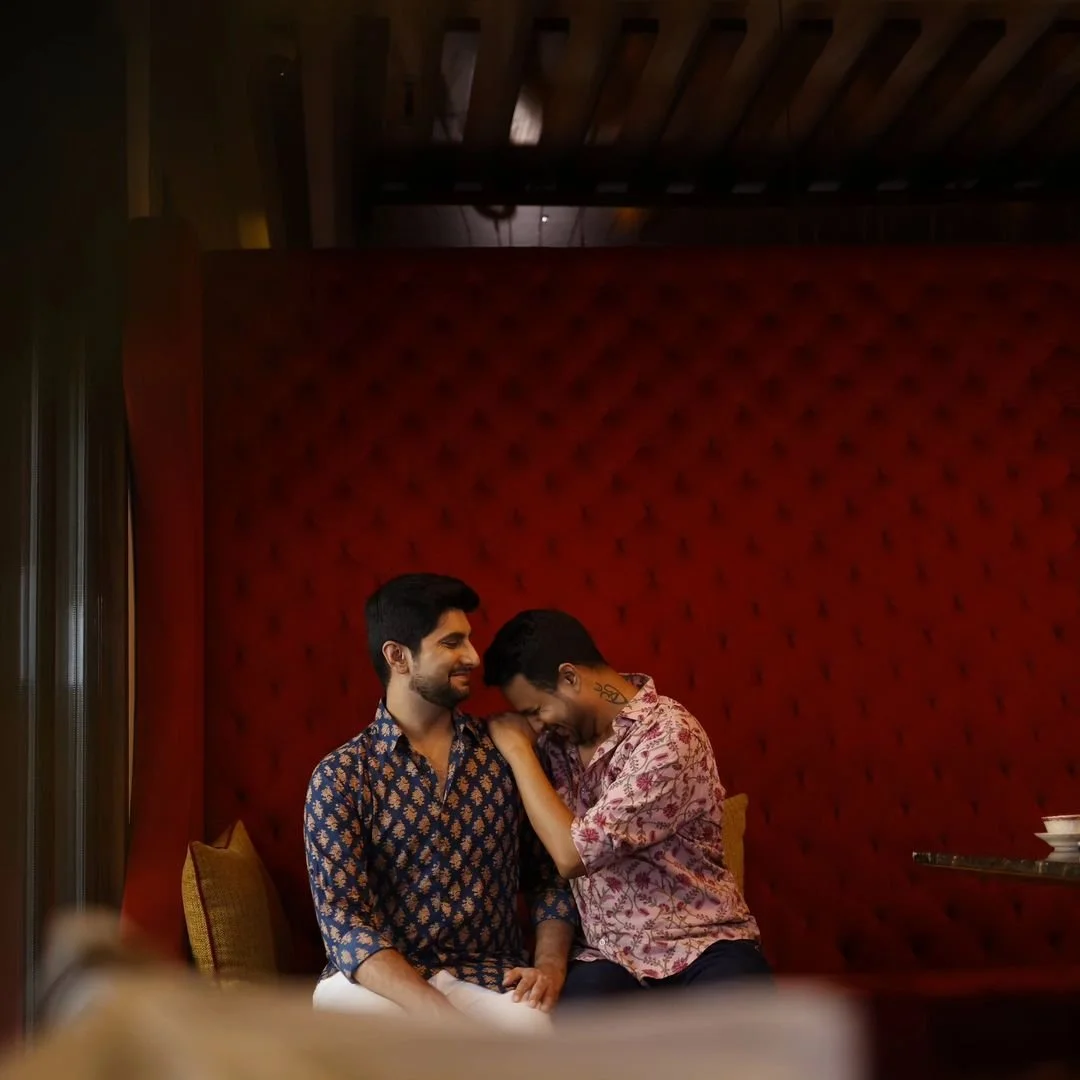Love Wins in Thailand. Ripple Effects on APAC Travel Industry?
LGBTQ+ community members react to the Marriage Equality law at the Government House in Bangkok. Photo: EPA-EFE
Why Thailand’s Legalization of Same-Sex Marriage Matters
In a groundbreaking move, Thailand's parliament overwhelmingly approved a bill legalizing same-sex marriage by a margin of 140 to 4.
This historic vote positions Thailand as the first Southeast Asian nation to grant same-sex couples the right to marry, adopt children, and inherit property. This landmark decision signifies a step towards greater social inclusion and equality, cementing Thailand’s image as an inclusive society.
The global LGBTQ+ tourism market is expected to reach US$ 568.5 Billion by 2030.
The UN Tourism Organization, in its 2017 report, cites that marriage equality legislation has become “shorthand for... acceptance of ethnic and sexual minority groups as a whole” and “sends a powerful brand image of tolerance, respect, progress, and open-mindedness, resulting in an increase in LGBTQ+ visitors, among others.”
Thailand’s travel industry, already a key economic sector, stands to benefit from this influx of LGBTQ+ tourists seeking a welcoming and accepting destination.
Using Hawai’i as an example, same-sex marriage was estimated to increase tourism and tax revenue by $217 million over three years after the Rainbow state passed the legislation in 2013, ahead of the U.S. Supreme Court’s nationwide ruling in 2015.
Bangkok Pride Parade 2024 on June 1, seventeen days prior to Thai parliament’s passage of same-sex unions. Photo by: Peerapon Boonyakiat/SOPA Images/LightRocket/Getty
The Broader Impact of Social Inclusion and Equity in Asia
The legalization of same-sex marriage underscores the importance of inclusivity and equal rights for all as fundamental components of sustainable development.
Social sustainability emphasizes creating a society that is just, equitable, and inclusive for all.
Thailand’s success story will likely inspire LGBTQ+ rights advocates around the Asia Pacific region to adopt the proven roadmap to advance the fight for marriage equality in their countries.
According to several Pew Research Center surveys, people in Japan and Vietnam hold some of the highest favorable views on same-sex marriage in Asia. This suggests they could be the next Asian nations to pass marriage equality laws.
Various Japanese district courts ruled that the Japanese government’s ban on same-sex marriage is unconstitutional, and Tokyo’s metropolitan government issued special same-sex partnership certificates in November 2022. But nationwide legislation remains far out of reach as Japan's conservative ruling Liberal Democratic Party has no plans to legalize same-sex unions.
State of Play: LGBTQ+ Inclusivity in the Travel Discourse
According to Uwern Jong, Experientialist-in-Chief of OutThere, ”the hospitality industry has long attracted LGBTQ+ people to work in it, comparative to many other industries; and LGBTQ+ representation is high in the industry.” Coupled with a high level of international and intercultural interactions, “the acceptance and tolerance of LGBTQ+ members in the workforce in travel has improved significantly in recent years.”
Jong highlights that the socio-economic standing of an LGBTQ+ individual also plays a part in how well they move up in life and also in their career. That socio-economic gap “remains as wide as ever and we need to be able to close that gap for all LGBTQ+ people.”
Many tourism businesses are faced with a unique challenge: balancing inclusivity with safety of the LGBTQ+ travelers and team members.
This dilemma is perhaps even more pronounced for companies committed to sustainability as they are called up to uplift all people, safeguard the planet's well-being, and maintain profitability.
Social sustainability involves fostering an inclusive environment where diversity is not just accepted but celebrated.
If you are a sustainability-led travel company or hotel in a country where LGBTQ+ rights are suppressed, what would you do?
Would you prioritize inclusivity and risk alienating your governments or partners? Alternatively, should you ignore the issue, disregarding the LGBTQ+ people and forgoing the increasingly valuable market segment of LGBTQ+ travelers, all while claiming to be sustainable, responsible, or ethical?
Travel Companies as an Ally: Fostering LGBTQ+ Inclusivity
Jong emphasizes that Asian business culture is mostly influenced by its leadership. He highlights the essential role of company leaders in providing the necessary tools and resources to support diverse individuals and promote greater intercultural awareness. This is crucial, as the foundation of hospitality and tourism lies in mutual respect. Good businesses and leaders recognize that creating a respectful and inclusive work culture, where individuals can be their true selves, can enhance productivity, brand reputation, and financial performance.
Hugo Huynh, Head of Commercial at Travel Neutral Collective, believes the next frontier of the movement will be fighting for the recognition of transgender people. Huynh also advises tourism business leaders to prioritize hiring based on a candidate’s attitude and work ethic rather than their sexual orientation.
Linh Nguyen, Co-founder of Jackfruit Adventure highlights, “no matter how exceptional our vision or mission, it falls short if not communicated effectively to our team who represents us. Acquiring talent, providing ongoing training, and encouraging knowledge sharing help employees understand their crucial role in enhancing customer experiences.”
Jong believes that, through his work with OutThere, Go Thai. Be Free, and The LGBT+ Travel Symposium, "business activism can breed societal activism. Education, advocacy, and action are ongoing endeavors. Change takes long-term dedication and development, so we always need to stay on top of things."
Nguyen stresses, “When a tourism business hires LGBTQ+ members, it provides a sense of security and trust to LGBTQ+ visitors.”
John Tanzella, President and CEO of the International LGBTQ+ Travel Association (IGLTA), advocates for supporting travel companies in countries with anti-LGBTQ laws by providing them with the resources to foster a welcoming environment.
He cites examples of tour operators like Out Asia Travel and hotels including Ace Hotel Kyoto and India’s Lalit Suri Hospitality Group that have prioritized inclusivity, often attracting a loyal LGBTQ+ clientele and enhancing their reputation as socially responsible businesses.
Photo by: Ace Hotel Kyoto
Tanzella believes that “responsible tourism must include support for local communities and respect for diversity, which can be achieved through subtle but impactful actions.”
“While navigating local laws requires sensitivity, there are ways to subtly demonstrate inclusivity, like staff training on respectful language, LGBTQ+ representation in their marketing and events, and offering gender-neutral amenities,'' Tanzella emphasizes.
Photo by: The Lalit Group
The IGLTA Global Convention, for the first time in its 41-year history, will be held in Asia.
This is a testament to a surge in LGBTQ+ travel, with a rising demand for inclusive experiences in Asia. The previous IGLTA Global Conventions held in various cities from Sydney to San Juan brought forward business partnerships between the international and local LGBTQ-friendly travel companies.
The hosting prefecture Osaka was Japan’s first regional-level government to implement a same-sex partnership system, and Osaka City has led Japan in encouraging businesses and organizations to incorporate and implement protections for LGBTQ+ individuals.
The convention will connect local tourism businesses across Asia with the global LGBTQ+ market, sparking vital dialogue between travel professionals and local stakeholders and paving the way for a more welcoming Asia for all.
In the meantime, here are some practical strategies that IGLTA recommends travel companies consider to support social sustainability and inclusivity without jeopardizing their relations with partners and local law enforcement agencies
Focus on Hospitality: Provide excellent service to all guests, regardless of background.
Diversity & Inclusion Training: Implement staff training that fosters a welcoming environment for all.
Supplier Partnerships: Partner also with LGBTQ+-owned businesses whenever possible.
Community Engagement: Support local LGBTQ+ organizations, even through discreet sponsorships or engagement.
The Caveat: Travelers Must Embrace Respectful Travel in Conservative Areas
Wahyu Kelsall, Marketing and Communications Manager at Six Senses Bhutan, advises LGBTQ+ travelers to prioritize research and cultural sensitivity when visiting conservative regions in Asia.
He stresses the importance of subtlety - consider packing versatile clothing that allows you to adapt your style to different cultural contexts, prioritizing comfort and safety.
Traveling responsibly involves striking a balance between respecting local customs and staying true to one's identity. Kelsall recommends, “With preparation, respect, and cultural sensitivity, LGBTQ+ travelers can enjoy fulfilling and enriching experiences even in the most conservative corners of Asia.”
For more information on LGBTQ-friendly travel advice, visit OutThere.
Photos: Chiang Mai Lantern Festival by Trip Advisor (L); Nomadic Boys in Bhutan (R)
TL; DR
Thailand's legalization of same-sex marriage marks a historic victory for LGBTQ+ rights, setting a precedent in Southeast Asia and boosting the country's travel industry.
This development promotes social sustainability and inclusivity, inspiring other gay rights advocates in other Asian nations to adopt its successful blueprint.
The travel industry plays a crucial role in fostering LGBTQ+ acceptance as responsible tourism is about supporting local communities and respecting diversity. It’s important to set the tone from the top with mindful leadership. The key to winning hearts and minds is through subtle but impactful actions.











